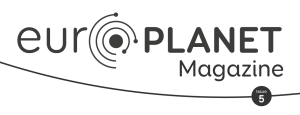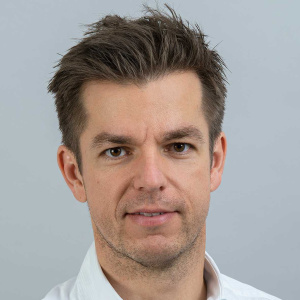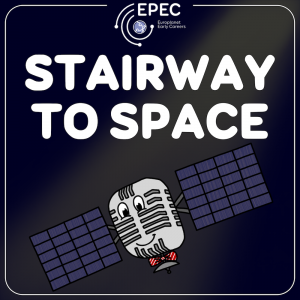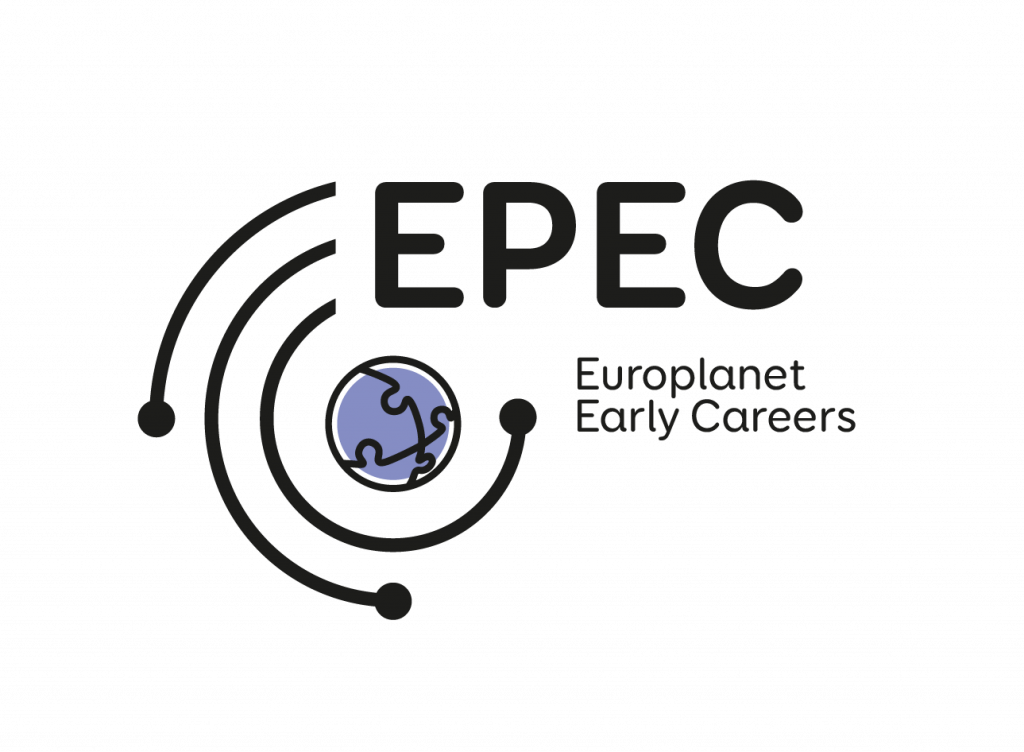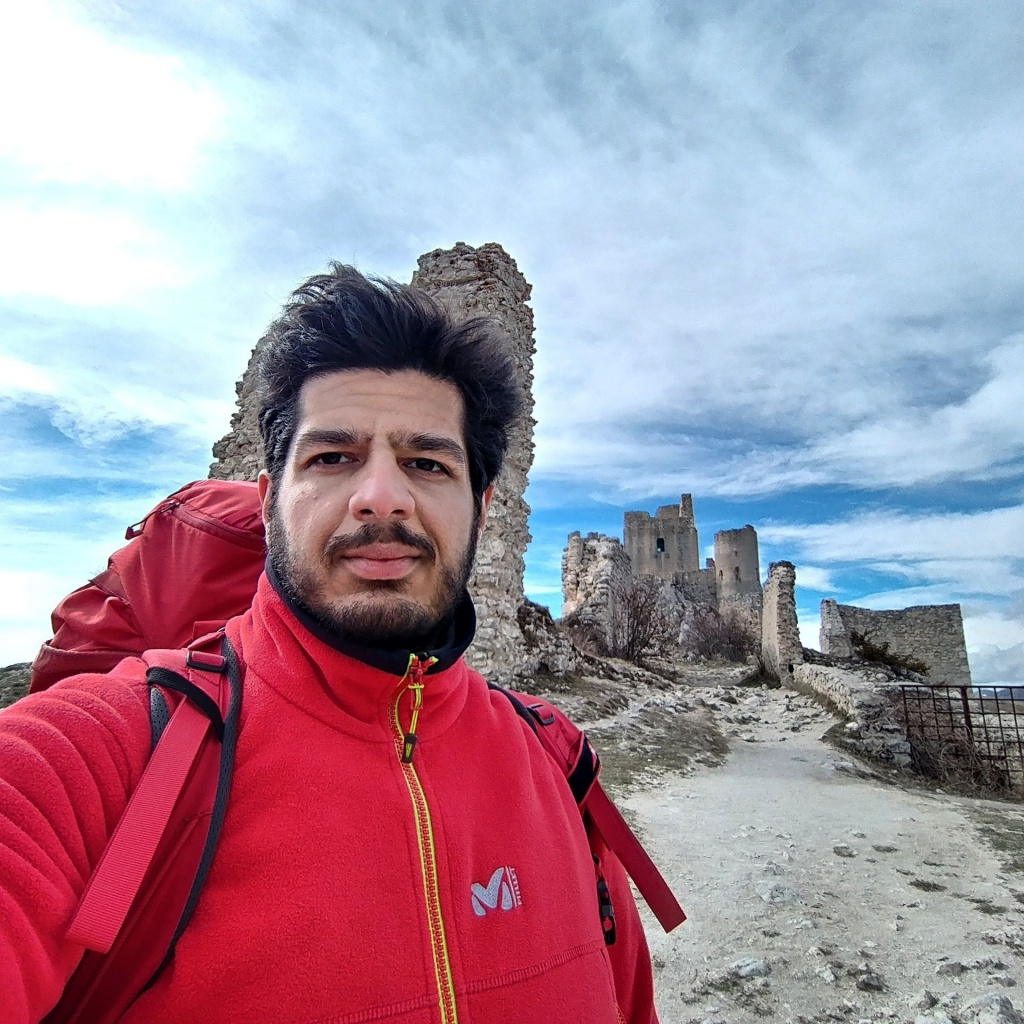
The first half of 2023 has been an intense period of activity for Europlanet and the wider planetary science community. Here, is a roundup of the latest news, meeting reports and results of projects.
Europlanet News | EPEC News | Community News
Europlanet Research Infrastructure Meeting (ERIM) and EPEC Annual Week 2023
Read article in the fully formatted PDF of the Europlanet Magazine.
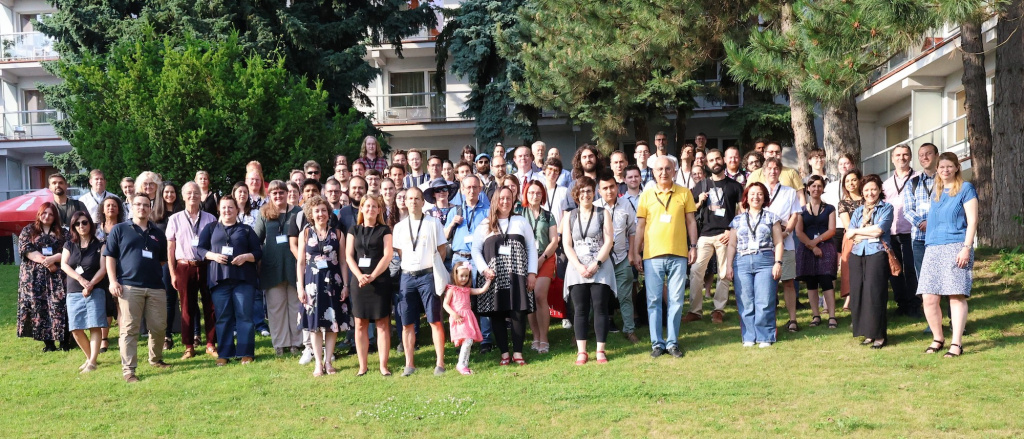
The first Europlanet Research Infrastructure Meeting (ERIM), co-hosted with the fifth Europlanet Early Career Network (EPEC) Annual Week, took place from 19-23 June 2023 in hybrid format at the Hotel Sorea in Bratislava, Slovakia, and online. 137 participants joined us for the meeting in Bratislava, with a further 94 following the meeting online. Of these, 45 participated in the hybrid EPEC Annual Week training school.
Alongside a series of interactive workshops related to the activities of the Europlanet 2024 Research Infrastructure (RI) project, ERIM provided an opportunity to roadmap overall strategy for the Europlanet Society and the new Europlanet Association, a legal structure established to sustain Europlanet programmes for decades to come. The outcomes of the roadmapping exercises will be developed over the coming months, with the aim of publishing a full operational and business plan for Europlanet in September 2024. Look out for a full report on ERIM 2023 in the next issue of the Europlanet Magazine.

Europlanet Science Congress (EPSC) Upcoming Events
Read article in the fully formatted PDF of the Europlanet Magazine.

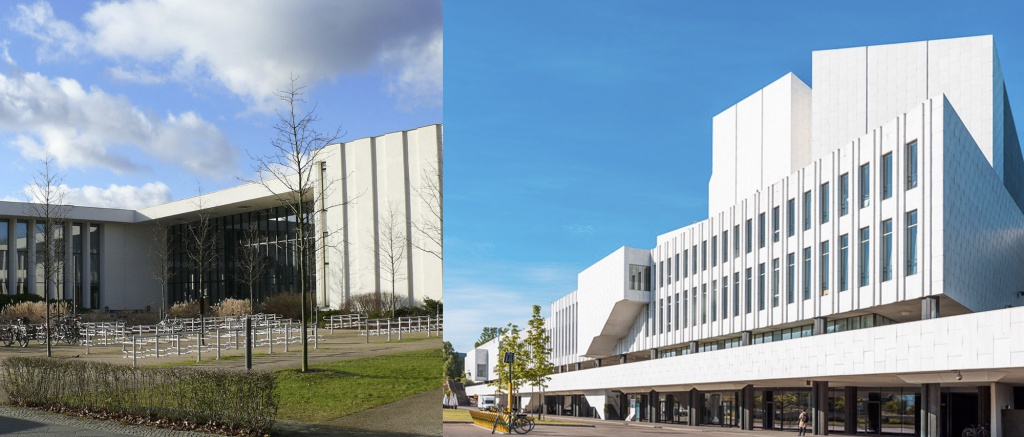
Registration is now open for the Joint 55th Annual Division for Planetary Sciences (DPS) Meeting and 18th Europlanet Science Congress (EPSC), which will take place from 1-6 October 2023 in San Antonio, Texas and as a hybrid event online. The conference will be the fourth time the DPS and EPSC have combined their annual gatherings and the second time the joint meeting has taken place in the United States.
New venues have also been announced for the next two EPSC meetings. EPSC2024 will be held at Freie Universität (FU) Berlin, Germany, from 8-14 September 2024. In 2025, EPSC will again be a joint meeting with the DPS, and will take place in the newly refurbished Finlandia Hall, Helsinki, Finland, from 7-13 September 2025.

Planetary Defence Workshop in Morocco
Read article in the fully formatted PDF of the Europlanet Magazine.
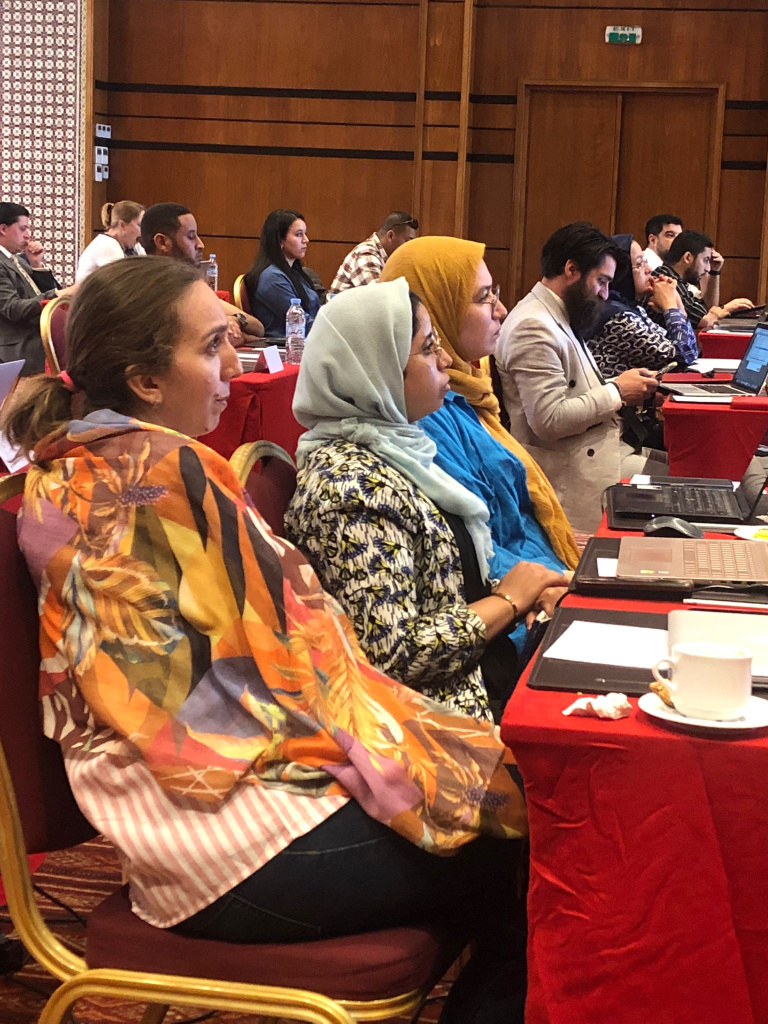
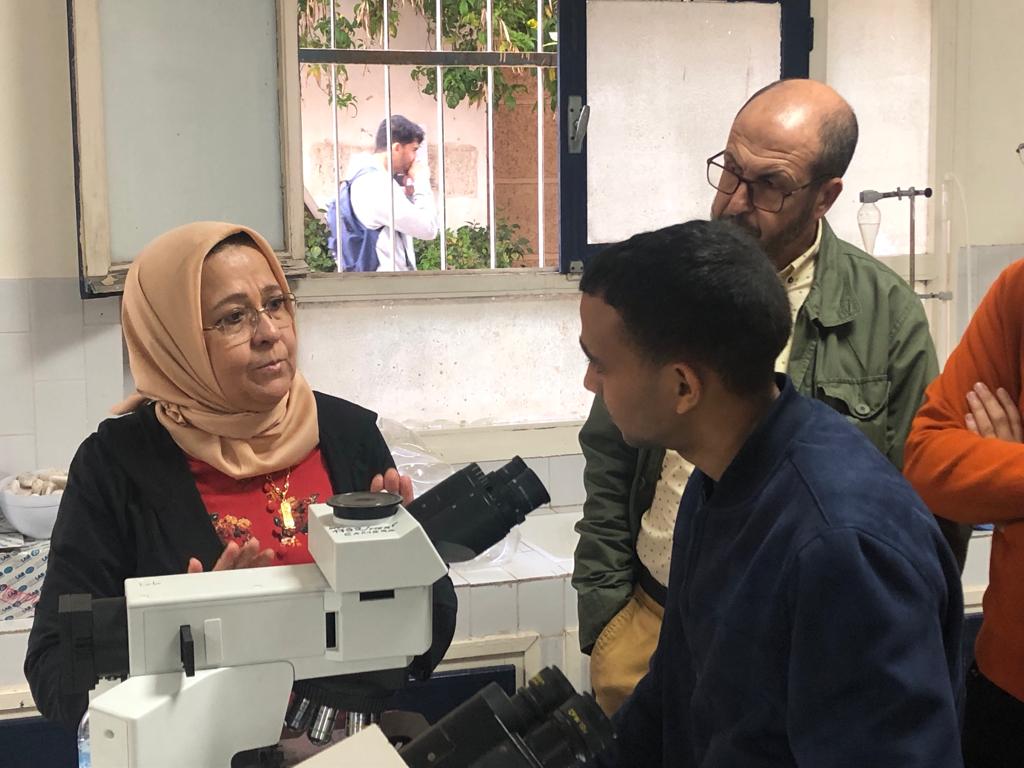
Planetary defence was the focus of discussion at a workshop in Casablanca, Morocco, held 25-28 April 2023. Over the four days of meetings, dialogue and hands-on training, topics covered included meteorites, meteoroids, impact craters, protection of extraterrestrial material heritage and impact-related astrobiology.
The ‘Rocks from Space and Planetary Defence’ workshop was the third in a series organised as part of the Global Collaboration and Integration Development Task of the Europlanet 2024 RI project. The series is coordinated by Prof Barbara Cavalazzi, of the University of Bologna, and is designed to promote and and support the development of planetary sciences in Africa – in line with the African Union’s objectives for the African Space Strategy. The workshop in Morocco aimed to lay the foundations for forming a community of specialists on planetary defence.
The event was attended by approximately 30 in-person professionals, early career researchers and PhD candidates from all over Morocco (Casablanca, Marrakech, Rabat, Errachidia, Laayoune, El Jadida, Kenitra, Tangier, and Teutan), alongside around 40 international participants who joined online from Africa (Ethiopia, Mozambique, South Africa, Nigeria, Botswana), Europe (Italy, England, Germany), and around the world (China, Jordan, India, Pakistan, Mexico and China).

Read article in the fully formatted PDF of the Europlanet Magazine.
GMAP Winter School 2023
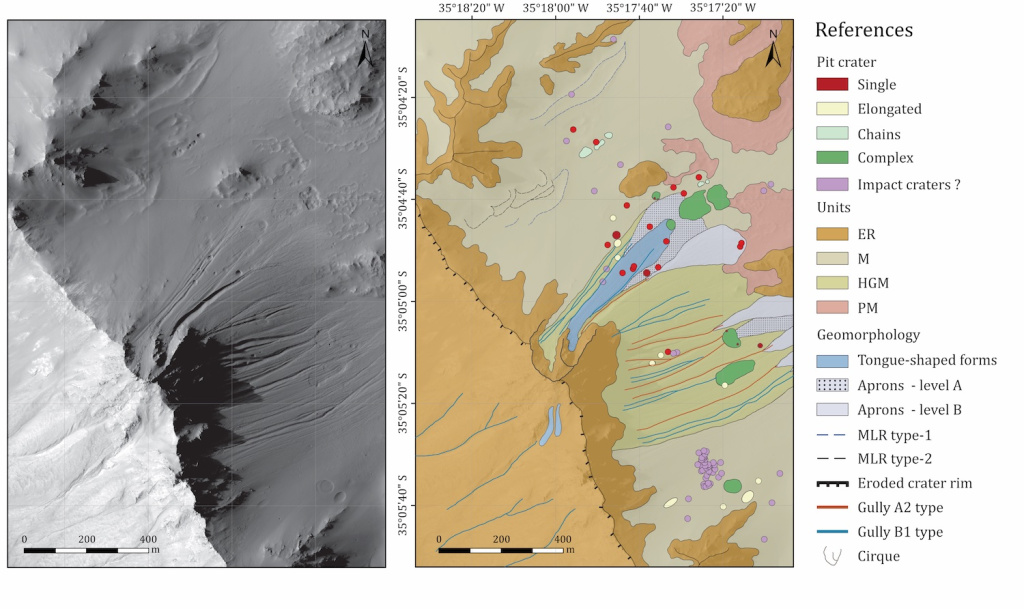
The third GMAP Winter School was held virtually from 30 January to 3 February 2023. Training sessions were focused on geologic mapping of past and future landing sites on Mars and the Moon, with the aim of highlighting the technical and scientific skills needed for the next generation of planetary mappers. Participants were largely early career scientists, including Master’s students, PhD candidates and early post-doctoral researchers. Expanding on the successful format of the two previous editions, with asynchronous interaction as well as live participation in lectures and demonstrations of state-of-the-art techniques, the 2023 Winter School had more than 400 subscribers and 120 real-time attendees during activities. The Winter School was co-funded by the Europlanet-GMAP infrastructure, the University of Padova and Constructor University.
Training materials from all Winter Schools to date are available online.

VESPA Implementation Workshop 2023
Read article in the fully formatted PDF of the Europlanet Magazine.
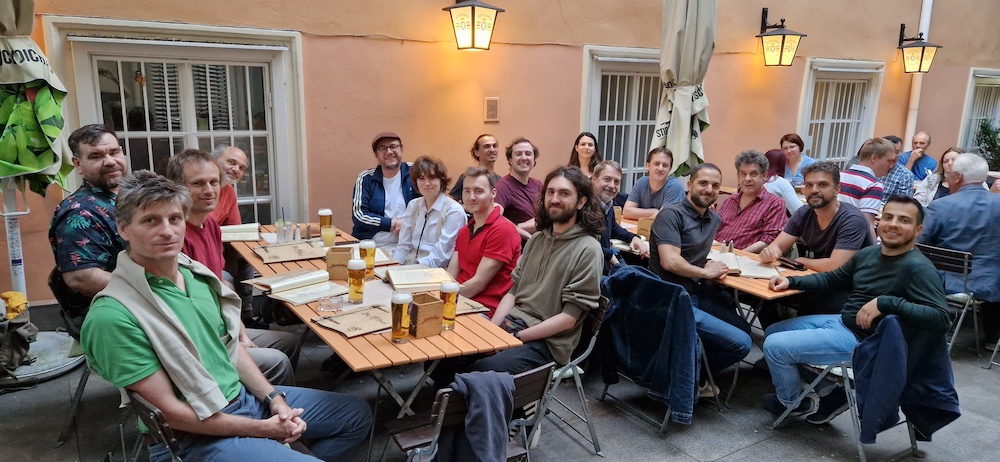
The VESPA Implementation Workshop 2023 took place from 30 May to 2 June 2023 at the Space Research Institute in Graz, Austria. VESPA is a virtual access activity in the Europlanet 2024 Research Infrastructure (RI) programme. Its aim is to make planetary science and Solar System data accessible and searchable through an interoperable system based on the principles of Open Science and standards developed in the framework of the astronomical Virtual Observatory. VESPA currently provides access to 63 data services, with many more in preparation.
Five teams, selected through an open call, were invited to attend the workshop to help them design and implement projects to make their data content accessible through VESPA and to open it to the user community. The teams, who came from the Czech Republic, Ireland, Italy and Poland, were joined by Europlanet team members and other database providers. The face-to-face workshop will be followed up by telecons to support the finalisation of the new services, which will be ready in the autumn.

AQUILA Facility Hosts First Transnational Access Visit
Read article in the fully formatted PDF of the Europlanet Magazine.
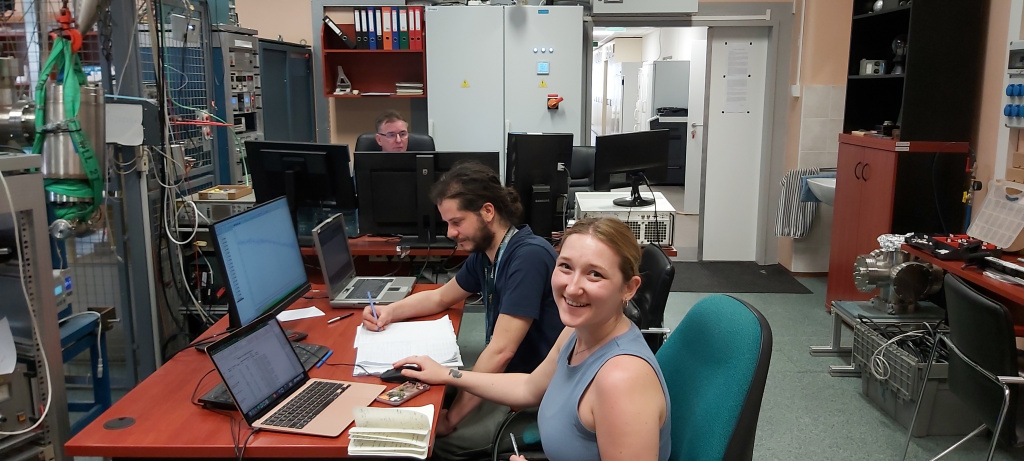
The new Atomki-Queen’s University Ice Laboratory for Astrochemistry (AQUILA) facility, established at the ECR Ion Source (ECRIS) Laboratory at Atomki, Debrecen, hosted its first Transnational Access (TA) visit in April. International researchers can now visit the AQUILA facility in Hungary with funding from the Europlanet TA programme.
The AQUILA facility consists of an Ultra High Vacuum (UHV) compatible chamber containing a substrate on which astrophysical ice analogues can be grown at cryogenic temperatures down to -253°C. These ice analogues can be exposed to ion irradiation, and the resultant chemical or physical changes can be monitored using mid-infrared spectroscopy. The new facility has been developed as part of the Europlanet 2024 Research Infrastructure (RI) Joint Research Activity (JRA) programme (see article ‘Developing Labs for Research that is Out of this World‘).
The first visit was by Grace Richards, a PhD candidate at the Open University, whose TA project focused on understanding the surface radiation chemistry on Enceladus, an icy moon of Saturn. Europlanet’s TA funding covers free travel and accommodation for visiting researchers and service costs for facilities. The programme provides access to over 40 planetary analogue field sites, simulation laboratories and sample analysis facilities.
Since the start of the Europlanet 2024 RI project, three full calls for the TA programme have been issued, as well as a ‘fast track’ call to support high-impact science and early career research projects. The third and final call, which closed in January 2023, received 108 applications. Following an anonymous peer review, 71 visits were funded, 18 of which relate to planetary field analogue sites and 53 to laboratory facilities. The successful projects include 7 investigations led by researchers from under-represented states and 11 led by international researchers from Asia (Japan, India, South Korea) and America (Argentina, Canada, Ecuador, US). In total, Europlanet 2024 RI has approved funding for 211 research projects out of 322 applications for all calls to date.
Summaries of all completed TA projects can be found on the Europlanet website.

Icy Moons Collection of Educational Resources
Read article in the fully formatted PDF of the Europlanet Magazine.
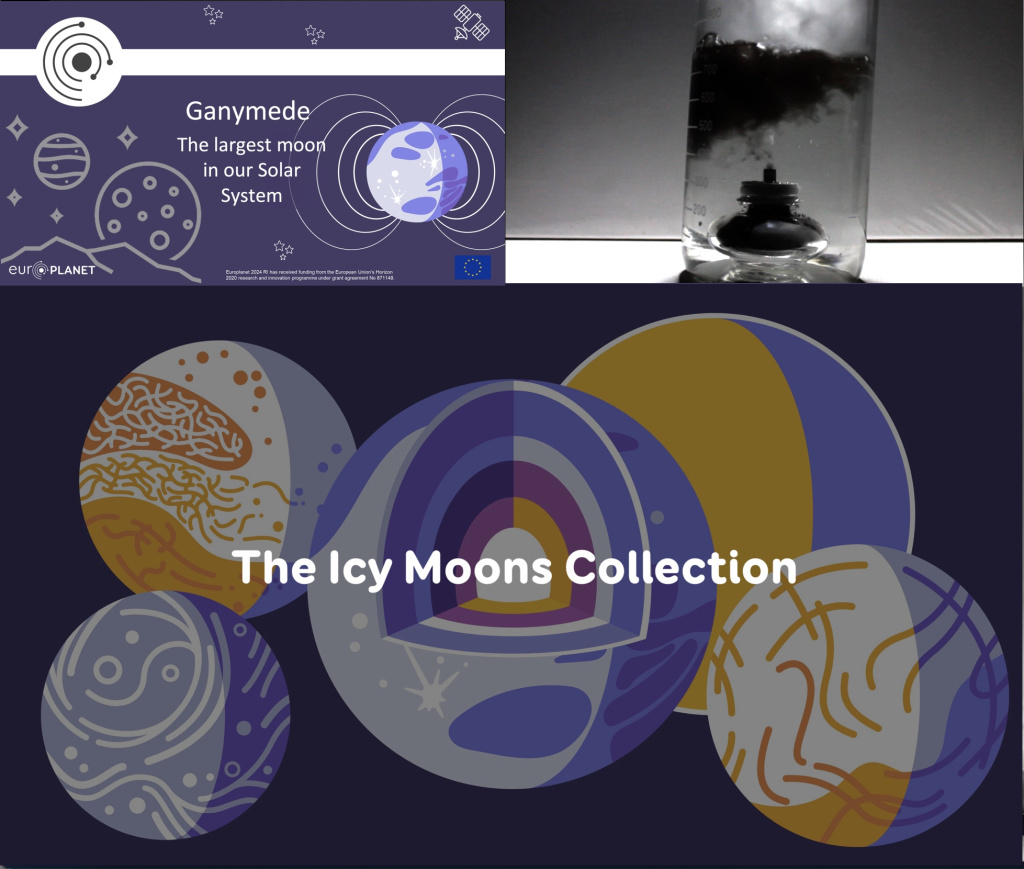
To celebrate the launch of ESA’s JUICE mission, Europlanet has released a new collection of free educational resources themed around icy moons in our Solar System. The first three resources, on Europa, Ganymede and Enceladus, are now available for educators and science communicators to try out. The educational packs include presentations, teachers’ notes, videos, links to additional information and a glossary of terms related to the exploration of these mysterious worlds. The resources are also linked to seven laboratories that simulate conditions relevant to icy moons and are accessible through Europlanet’s Transnational Access programme. The resources are targeted at students aged 10-14 years old and cover topics common on European educational curricula for biology (conditions for life, life in extremes), physics (magnetism), chemistry (states of matter, solutions), and geology (surface landforms, hydrothermal vent systems). New resources and translations will be added over the coming months.
https://bit.ly/EuroplanetIcyMoonsCollection

Society News

Read article in the fully formatted PDF of the Europlanet Magazine.
New Website for Europlanet Society Members
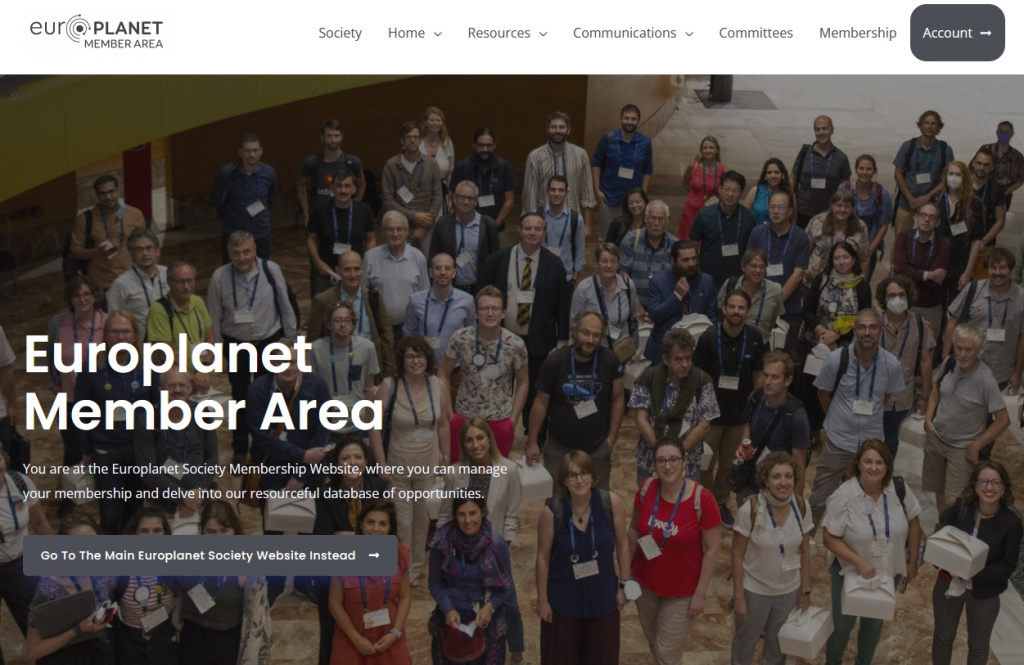
Europlanet has a brand new membership website! The site can be accessed from the main Europlanet Society site under the Membership menu item. The new sub-site aims to provide an efficient membership system that integrates many useful tools, such as a newsletter mailing module, payment management, and a platform to edit your details.
The new site also contains members-only resources such as webinars and the Europlanet Industry Database, plus listings of the various committees working within the Europlanet Society and a tool to nominate yourself or a colleague (with their knowledge, of course) for a role in a committee or working group. There is also a space to share opportunities and job openings in the planetary sector.
The Europlanet Executive Office team hopes you enjoy the features offered by this new website. If there is anything you would like to see added or if you have any feedback, please contact:
membership@europlanet-society.org

Read article in the fully formatted PDF of the Europlanet Magazine.
Incoming Chair of Switzerland Regional Hub
Sascha Quanz is the new Chair of the Europlanet Society’s Switzerland Regional Hub. His background is in astrophysics – and specifically in exoplanetary science – and he leads the Exoplanets and Habitability research group in the Physics department at ETH Zurich. The group has a diverse research portfolio ranging from hardware development and instrumentation, to observations, data analysis and modelling of exoplanet atmospheres and interiors. On the hardware side, the group is involved in (large) ground-based and space-based telescopes, such as the Very Large Telescope (VLT) in Chile, the future Extremely Large Telescope (ELT), and the James Webb Space Telescope (JWST).
As Principal Investigator (PI), Sascha is currently leading the international Large Interferometer for Exoplanets (LIFE) initiative. LIFE is an ambitious space mission that will allow humankind to detect and characterise the atmospheres of hundreds of nearby extrasolar planets, including dozens that are similar to Earth. In 2021, the science of the LIFE mission – the characterisation of temperate, terrestrial exoplanets, and searching for life outside the Solar System – was identified as a top-priority theme by a senior committee advising the ESA Science Director, and is a potential topic for a Large Mission in ESA’s future Science Programme. Sascha serves on the board of the Swiss National Centre of Competence in Research “PlanetS”, an interdisciplinary and inter-institutional research network investigating the formation and evolution of planetary systems, and is the Deputy Director of the recently founded ETH Centre for Origin and Prevalence of Life.

Read article in the fully formatted PDF of the Europlanet Magazine.
Europlanet Meets Fantasy Basel
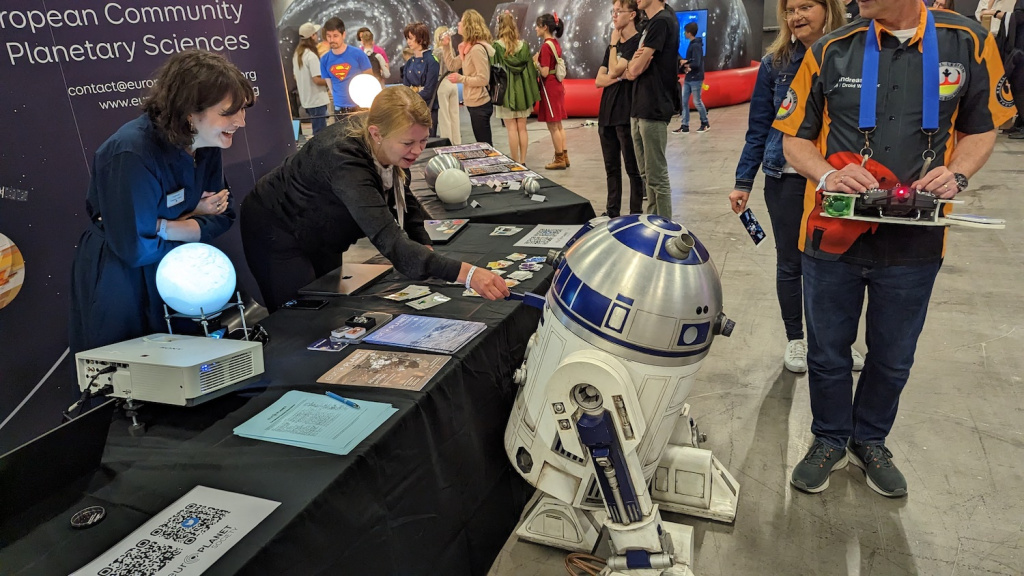
With 72,000 visitors, Fantasy Basel is one of Europe’s largest science fiction, fantasy and pop-culture conventions.
From 18-20 May 2023, the Europlanet Society joined forces with the NCCR PlanetS and the Swiss Space Museum to highlight the ‘science’ in science fiction for visitors to Fantasy Basel. The team offered a tour of the Solar System through the ‘Planets in a Room’ spherical projection kit and a multisensory experience through a collection of meteorites that visitors could look at, handle and – if they so wished – smell. The experience was very much enjoyed by the public as well as the Europlanet team working on the stand, who met some very colourful visitors from across time and universes.

Read article in the fully formatted PDF of the Europlanet Magazine.
Soapbox Science Brussels 2023
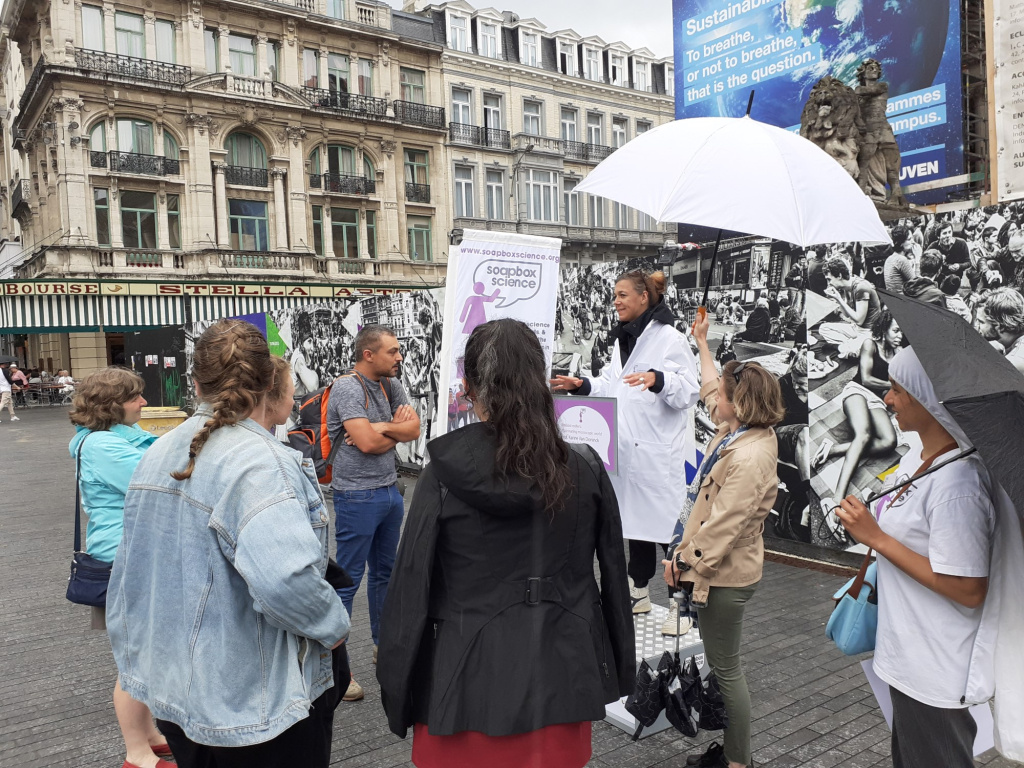
On Saturday 24 June, 12 female researchers in Belgium brought their science to the public during the Soapbox Science Brussels event. Soapbox Science is a science outreach initiative that aims to promote the visibility of women and non-binary scientists and their research. The events are based on Hyde Park’s Speaker’s Corner and aim to transform public areas into discussion forums where scientists, on their ‘soapbox’ platforms, can talk about their research to people passing by. The organisers of Soapbox Science Brussels include members of the Europlanet Society Benelux Hub.

Europlanet Early Careers (EPEC) News
Read article in the fully formatted PDF of the Europlanet Magazine.
Podcast: PostDoc Life
The latest episode of ‘Stairway to Space’, the Europlanet Early Career (EPEC) podcast is out now! This episode talks about life as a postdoc and aims to help PhD students interested in starting their career in academia have a clear vision of a postdoc position. The show includes the personal experiences of EPEC members working as postdocs in different parts of the world. The ‘Postdoc Life’ episode is presented by Safoura Tanbakouei and features guests Iris van Zelst, Ines Belgacem and Solmaz Adeli. Stairway to Space is produced by Ilaria Di Pietro, Foivos Karakostas, Erica Luzzi, Melissa Mirino, Jose Silva, Safoura Tanbakouei, Gloria Tognon and João Dias.

EPEC Profiles are Back!
The EPEC Profiles series introduces members of the Europlanet Early Career (EPEC) community, who share their experiences and aspirations through stories on the Europlanet website.
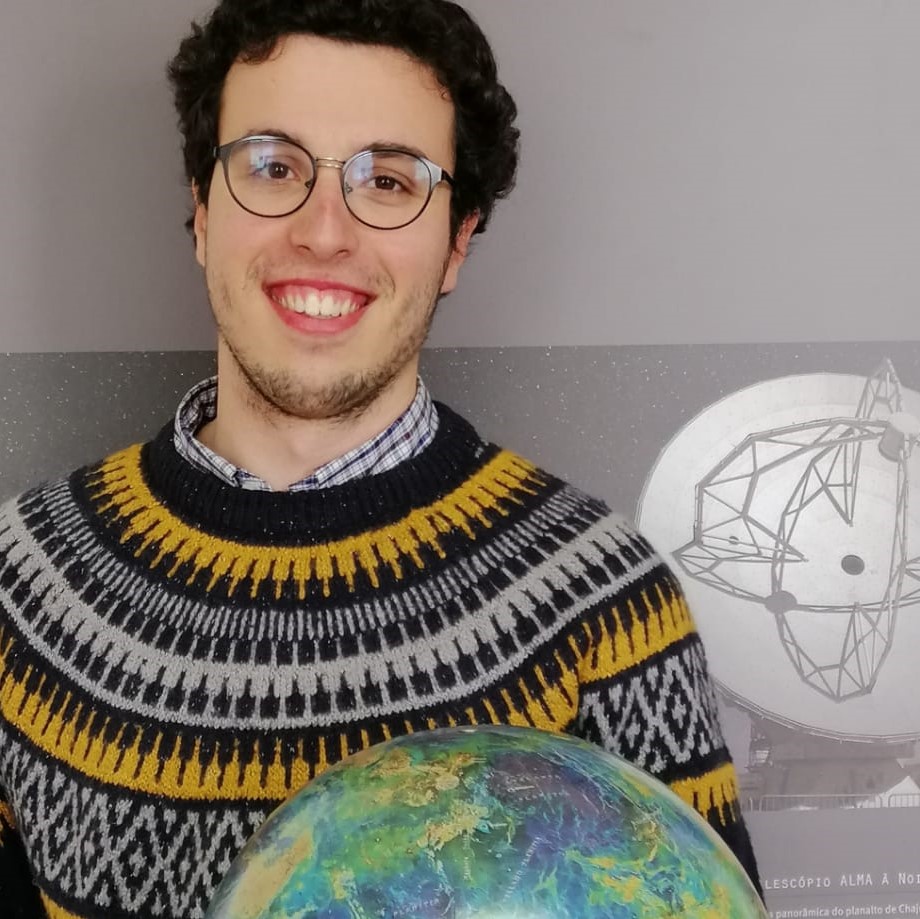
João Dias featured in August’s EPEC Profile.

Community News
Read article in the fully formatted PDF of the Europlanet Magazine.
Vision for the Future of European Astronomy Published
A new report by ASTRONET, an international consortium of funders and communities, sets out recommendations to guide investment priorities fostering our understanding of the Universe in the next decades. The ASTRONET Science Vision and Infrastructure Roadmap 2022-2035 is the latest roadmap produced by the ASTRONET network of European funding agencies communities and research organisations.
Panels, including over 100 scientists from across Europe, fed into the report and a series of public consultations were also held to ensure that it reflected the breadth of views within astronomy. The overall effort was led by the UK via STFC-UK.
The panels established key science questions, such as understanding the origin of the Universe and the evolution of planets in our Solar System, and made recommendations on the facilities and resources needed to meet these priorities. A continued supply of highly trained and motivated researchers will also be fundamental to progress and societal engagement. In making its recommendations, the report complements recently-published visions provided by the European Space Agency, the US Decadal Survey and advisory bodies, such APPEC for AstroParticle Physics. The previous ASTRONET Science Vision and Infrastructure Roadmap (published in 2007 and revised in 2015) included recommendations that fed into proposals for major scientific infrastructures such as the European Southern Observatory’s (ESO) Extremely Large Telescope and the Square Kilometre Array Observatory (SKAO).

